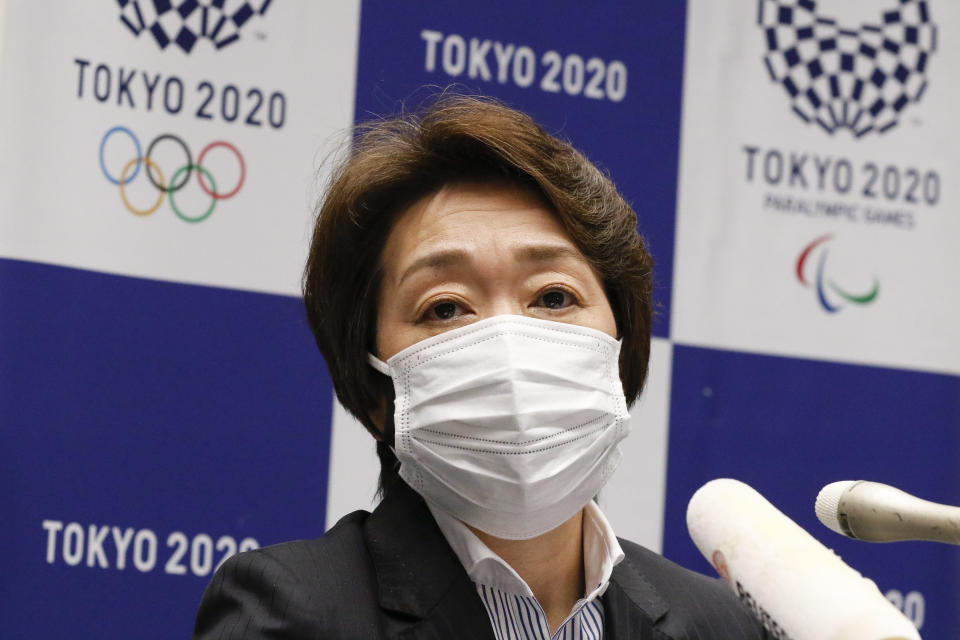Tokyo Olympics chief denies decision made to ban foreign fans

The head of the Tokyo Olympics Organizing Committee denied on Thursday widespread reports that Japan had decided already to bar foreign spectators from the Summer Games. Committee President Seiko Hashimoto told the Reuters news agency on Thursday that no final decision had been made on whether to open the Games to fans from abroad.
"We are still continuing discussions and have not yet reached a conclusion," she told Reuters. She added that the Committee hoped to make a final decision on foreign fans before the start of the Olympic Torch Relay on March 25.
Japan's national Kyodo news agency, along with Reuters and other media outlets, cited government officials on Tuesday as saying the decision had been made after weeks of mounting pressure from a public worried about visitors potentially carrying the coronavirus into the country, including some highly-contagious new variants.

Kyodo had not updated its story on the ban of foreign guests as of Thursday evening local time, and national public broadcaster NHK's English language website only had a story from Wednesday saying there was a "growing belief within Japan's government and the ruling parties that it will be difficult to allow spectators from overseas."
Japan has enjoyed relative success against the COVID-19 disease since the pandemic began a year ago. The nation has registered fewer than 450,000 confirmed cases and just over 8,000 deaths among its population of more than 126 million. The Japanese have long been comfortable with the wearing of face masks and that, combined with early recommendations on social distancing and other measures, has helped keep the disease largely in check despite a resurgence last autumn.
As COVID-19 flared across much of the Western world, however, the Japanese public voiced overwhelming opposition in January not only to hosting an international sporting event with thousands of visitors from around the world, but to the Tokyo Games being staged at all. About 80% of those polled by two national media outlets said the Olympics should be rescheduled or cancelled altogether.
Already the Games were postponed from the summer of 2020 until this year because of the pandemic, and Tokyo Olympics bosses in Japan and the International Olympic Committee have been steadfast in their determination to pull the event off — while always cautioning that some limitations would have to be made.
The conflicting signals over banning foreign spectators come about a month after Tokyo Olympics officials released a 33-page "playbook" of rules for behavior at the Games in a bid to show they've prepared adequately to host a safe event amid a global health crisis.
The document offered guidelines for behavior for certain groups of people who are going to attend the Olympics, including athletes and their entourages, but it made no mention of foreign fans, specifically.
Spectators who do get in won't be allowed to cheer or sing out loud under the rules, but only clap — the concern being that water droplets from fans' mouths could carry the virus.
There has been no suggestion of any requirement for either Olympics participants or fans to have coronavirus vaccines shots before they show up in Tokyo. Japan's national vaccination program was slow to get rolling, with the first doses only being administered in mid-February.
The heated debate over whether it's even safe to hold the Olympics has been only one of the major hurdles for the Tokyo Games' organizers. Last month, Hashimoto was picked as the new president of the Organizing Committee to replace an 83-year-old former Japanese Prime Minister, who was forced to resign from the job amid a scandal over his sexist remarks.
Sneak peek: Tracking the Murders of Israel Keyes
WorldView: Prince William denies racism in royal family; one year milestone in coronavirus pandemic
One year into the COVID-19 pandemic, doctor reflects on medical advances and the pandemic's lessons

